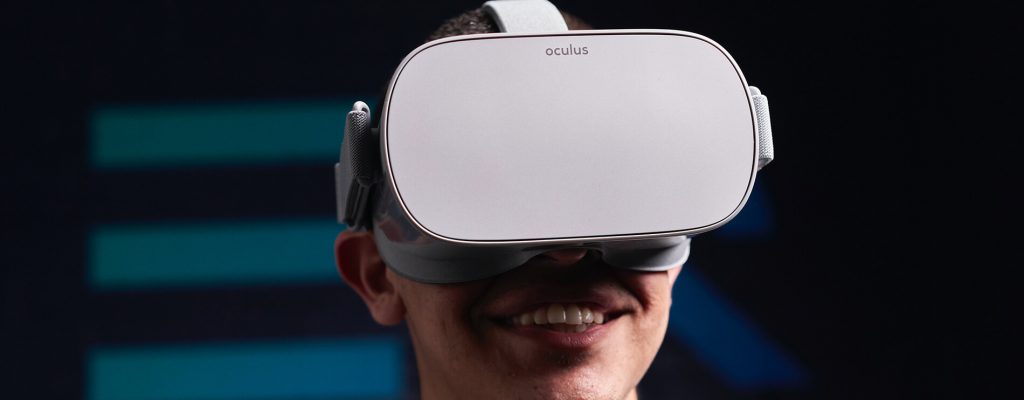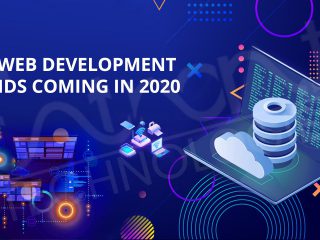Updated for 2021
There’s no denying the fact that the ecommerce industry is currently experiencing a major boom, and it is expected to continue on that trajectory. The market size has increased exponentially in the past few years, with projections showing its worth will reach the £4 trillion to £5 trillion mark soon. However, that is just the tip of the iceberg as analysts predict that the industry is going to grow even further in 2021.
Businesses in the ecommerce industry are having alot of success, however there is always the danger of standing still. You have to keep pace with the ever-changing trends of the ecommerce industry, and to help create awareness we will share the most important ecommerce trends for 2021. If you want to take advantage of these trends, get in touch with our experienced ecommerce team in Brighton to find out how we can help grow your business.
1. The rise of voice commerce
People will be relying increasingly on voice assistant devices such as the Amazon Echo with Alexa and the Google Home with Google Assistant for everything from waking them up in the morning to shopping online. It is estimated that by 2025 around 75% of all households in the United States will have smart speakers, as people start relying on technology for everything. In anticipation of that, voice commerce sales are estimated to reach over £30 billion by 2022 alone.
One of the main reasons for the growth of voice commerce is because of the convenience and accuracy of the technology. Both Amazon and Google are pushing to implement regional languages in their virtual assistant devices to help consumers shop more conveniently. Therefore, you need to optimise your ecommerce store for voice search.
2 Omnichannel Shopping Will Become Commonplace
Omnichannel shopping is all about providing shoppers with a consistent and seamless experience across multiple channels and devices. In a survey by Harvard Business Review, around 73% of participants claimed to use multiple channels during their shopping journey. With the increase in the adoption of mobile devices and voice assistants, the number of omnichannel customers is only going to rise even more, and that figure will be at its peak in 2021.
You can also use analytics tools that provide you with detailed ecommerce analytics to track everything related to cash flow and identify customer behaviours. An analytics tool will help you analyse which of your products are in demand, evaluate customer loyalty, and monitor your profit and loss. You can also use the tools to build reports for events that matter the most to your business, like view items, checkout progress, add to cart, and checkout success.
These insights allow you to provide shoppers with their desired offerings and flawless shopping experiences.
3. AI and AR Will Enhance Ecommerce Experiences
As per market estimations, online sellers will invest around £6 billion on AI by 2022, and more than 120,000 stores are going to be using AR technologies to provide customers with a rich buying experience. Artificial intelligence will act as your online in-store associate by providing personalised guidance and recommendations to your customers. AI will use the past purchase history of the shopper and browsing behaviour to show them products that they are more likely to purchase.
Online shoppers can’t try on or physically inspect the product that they intend to buy, unlike in physical stores. However, Augmented Reality (AR) helps eliminate this hurdle by allowing customers to see how a certain product is going to look at them before they even buy the product. By implementing AI and AR in your ecommerce store, you will give yourself a major boost in conversions and a substantial decrease in your products’ return rate.
4. The Emergence of New Payment Options
One of the other main ecommerce trends of 2021 will be new payment systems. One of the main reasons why customers choose to do business with a particular brand is mainly down to the different types of payment options on offer. If you’re not going to provide your customers with their preferred payment method, they aren’t going to purchase from your ecommerce store. Currently, most ecommerce stores accept digital wallets, which include the likes of Google Pay, Apple Pay, or PayPal, apart from debit and credit cards.
Cryptocurrencies, like Bitcoin, have many benefits for ecommerce store owners, such as no reverse transactions and low transaction fees. By the year 2021, more ecommerce businesses are expected to start accepting cryptocurrencies like Bitcoin for transactions.
5. Brands Are Going to Continue Adopting Dynamic Pricing
The best thing about dynamic pricing is that it allows ecommerce retailers to stay competitive in the marketplace and also attract new customers. You’re not going to be generating enough sales, even if you’re selling the best product in the world if you don’t price it correctly. That’s why you need to make sure you’re pricing your products correctly. To meet this objective, you will have to choose the amount at which you have the best chance of selling your product and making the maximum possible profits.
If you want to determine the best pricing for your products, you should be using dynamic pricing software. These tools are going to provide you with real-time insights into your competitor’s pricing, market demand, and the perceived value of your products to determine the optimal cost.
Final Thoughts
Ecommerce businesses who want to thirve in the marketplace need to start preparing themselves to adopt the latest trends as soon as possible. For that, you are going to need to ensure that you have the best ecommerce web design agency to support your business, so contact us today to find out how we can help you take advantage of this booming industry.








